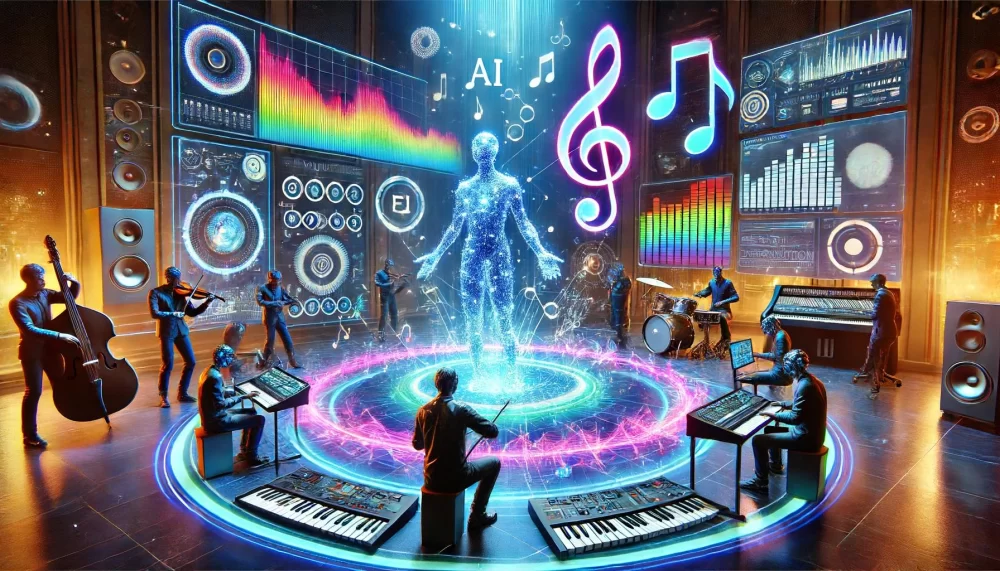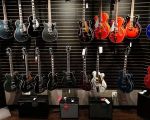
How AI is Revolutionizing Music Creation: A New Era for Artists
As I sit in my studio, staring at the digital audio workstation (DAW) in front of me, I can't help but marvel at how far technology has come. What used to be a process that involved countless hours of recording, mixing, and mastering, now seems to be just a few clicks away. With the rise of artificial intelligence (AI), music creation has taken a giant leap forward, and as a musician myself, it's impossible to ignore the profound impact this innovation is having on the industry.
The Emergence of AI in Music Production
In recent years, AI has become more than just a buzzword in the tech world—it’s found its way into music production, forever changing the landscape of how music is made. Whether you're a seasoned musician or a hobbyist, AI tools are making the process of creating music more accessible, efficient, and innovative.
Take, for example, AI-powered music software that can generate melodies, harmonies, and even full arrangements based on a few user inputs. This isn't science fiction; it's happening right now. Programs like AIVA, Amper Music, and OpenAI's MuseNet are capable of composing complex music tracks in various styles, from classical to pop, and even experimental genres. What once took a team of musicians days, or even weeks, to put together, AI can now achieve in a fraction of the time.
AI in Composition: A New Creative Partner
One of the most exciting aspects of AI in music creation is its potential as a collaborative tool. I remember the first time I used AI to assist with a composition. I was skeptical at first, unsure whether an algorithm could understand the nuances of creativity. But as I interacted with the software, I was amazed by its ability to offer suggestions that not only complemented my style but enhanced it in ways I hadn’t thought of. The AI didn’t just mimic existing patterns; it introduced fresh ideas, breathing new life into my work.
For example, AI can analyze the emotional tone of a piece and suggest chord progressions or melodies that evoke similar emotions. It can also adapt to different genres, ensuring that your compositions stay true to the style you’re aiming for. The possibilities are endless, and as AI continues to evolve, it’s only going to get better at assisting musicians in the creative process.
AI for Sound Design: Crafting Unique Sounds with Technology
Sound design is another area where AI is making waves. Musicians, producers, and sound engineers have long relied on synthesizers and sample libraries to create unique sounds. However, AI can now generate entirely new sounds by analyzing existing ones and combining them in novel ways. This means that producers can create sounds that are truly unique, pushing the boundaries of what's possible in music production.
Tools like Endel use AI to create dynamic soundscapes that respond to environmental factors such as time of day, weather, and even a listener’s heartbeat. This type of AI-driven sound design not only offers a new form of expression but also opens up exciting opportunities for personalized music experiences, tailored to the individual listener's preferences.
AI in Music Distribution and Personalization
The influence of AI doesn't stop at the creation stage. It’s also having a profound effect on how music is distributed and consumed. Streaming platforms like Spotify and Apple Music rely heavily on AI algorithms to recommend songs to users based on their listening habits. These algorithms learn from your preferences and suggest tracks that they think you'll enjoy, creating a personalized music experience unlike anything we’ve seen before.
But AI isn’t just limited to recommendation systems. AI-driven platforms are also being used to optimize music marketing and distribution strategies. By analyzing listener data, AI can predict which songs are likely to become hits, allowing artists to target their promotion efforts more effectively. For independent musicians, this means they can now reach a broader audience with the help of AI tools that were once only available to major record labels.
The Challenges of AI in Music Creation
While the possibilities of AI in music creation are exciting, there are also challenges that come with this technology. One concern that many musicians and industry professionals have is the potential for AI to replace human creativity. Can a machine truly replicate the soul and emotion behind a piece of music? I believe that AI can enhance and assist the creative process, but it can never fully replace the emotional depth that a human artist brings to their work. AI may be able to generate notes and rhythms, but it cannot experience life the way a human does and translate that into music.
Another challenge is the ethical question surrounding the ownership of AI-generated music. If an AI creates a song, who owns the rights to that music—the software developer, the user who provided the inputs, or the AI itself? This is a grey area that the music industry will need to address as AI continues to play a larger role in music creation.
AI in Live Performance and Music Production
AI is not only transforming studio-based music creation but also live performances. Imagine a live show where AI is used to adapt the music in real-time, responding to the audience’s energy and mood. AI-driven tools are already being used in live performances to generate real-time visuals, adjust sound levels, and even create improvised music sequences that complement the performance. This level of interaction between technology and live performance is pushing the boundaries of what’s possible on stage.
For example, musicians can now use AI to analyze the crowd’s reaction during a performance and adjust the music accordingly. This could mean changing the tempo, adding layers to the music, or even introducing new elements, creating a dynamic experience that evolves throughout the performance. The result is a more immersive and engaging concert experience that brings fans closer to the music than ever before.
The Future of AI in Music Creation
The future of AI in music creation is incredibly promising. As AI continues to evolve, it’s likely that we’ll see even more advanced tools that allow musicians to create music faster, more efficiently, and with greater creative freedom. Imagine a world where AI can help artists not only create new music but also craft immersive, interactive music experiences that respond to listeners in real-time.
While AI will undoubtedly continue to play a significant role in shaping the future of music, it’s important to remember that it is still just a tool. It’s up to us as musicians to harness this technology in ways that enhance our creativity, not replace it. The relationship between AI and music creation is one of collaboration, not competition, and I’m excited to see where this journey will take us.
For anyone interested in exploring the world of AI-driven music tools, I highly recommend checking out platforms like Beat Trigger, which offers some of the most advanced AI tools for music creation, sound design, and distribution. The future is bright, and with AI by our side, the possibilities are endless.








